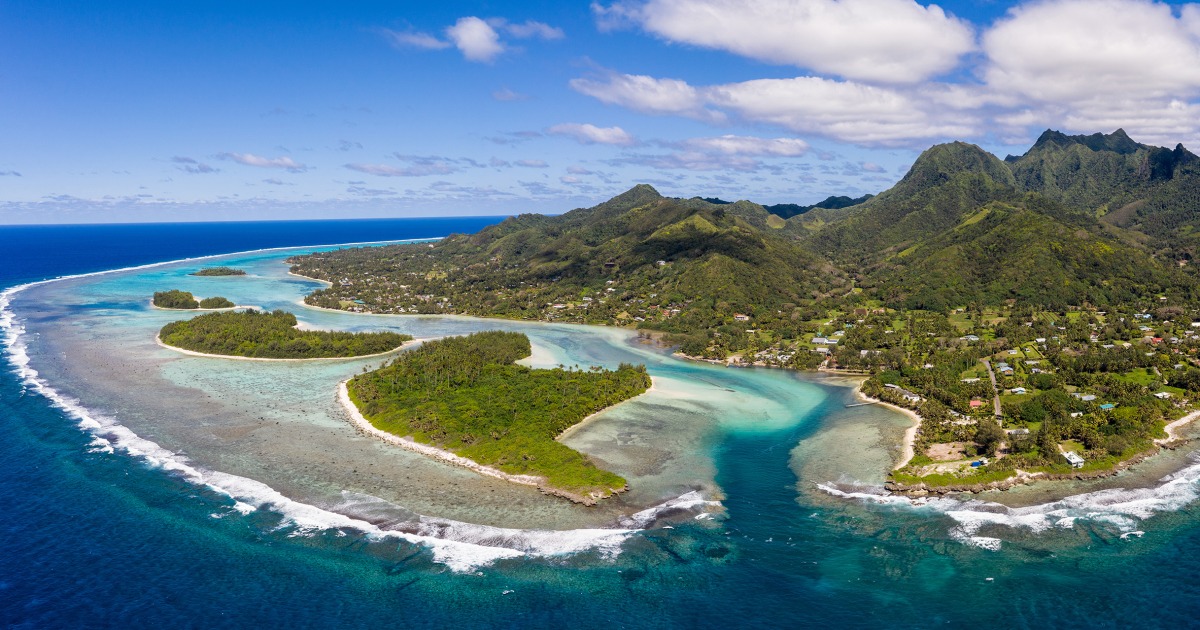Tensions Rise in Cook Islands: Understanding the Public Outcry Against China’s Economic Deal
In recent weeks, the picturesque Cook Islands, a jewel in the South Pacific, has found itself at the center of a stormy debate over a controversial economic deal with China. This agreement, which is touted to bring substantial investment to the islands, has ignited a wave of protests among locals, who are voicing their concerns about the potential ramifications on their environment and national sovereignty. The situation has escalated, prompting discussions about the balance between economic development and the preservation of cultural and ecological integrity.
The Deal: A Double-Edged Sword
The economic agreement between the Cook Islands government and China is primarily focused on infrastructure development and seabed mining. Proponents of the deal argue that the influx of Chinese investment could stimulate the local economy, create jobs, and enhance public services. However, critics are wary of the implications of such a partnership.
- Economic Growth: Supporters highlight that the investment could lead to improved infrastructure, including roads, schools, and healthcare facilities.
- Environmental Concerns: Environmentalists fear that seabed mining could lead to irreversible damage to marine ecosystems, which are vital to the islands’ biodiversity.
- Sovereignty Issues: There are growing anxieties among locals about the potential loss of control over their natural resources and the influence of a foreign power in their affairs.
Public Protests: Voices from the Heart of the Community
The protests that have erupted across the Cook Islands are a clear manifestation of public sentiment. Citizens, concerned about the future of their homeland, have taken to the streets, waving banners and chanting slogans against the deal. These demonstrations have drawn attention not only locally but also internationally.
Participants in the protests express a common thread of apprehension. Many feel that the government has prioritized economic benefits over the well-being of its citizens and the environment. Local leaders, including traditional chiefs and environmental advocates, have been vocal in their opposition, demanding greater transparency and community involvement in decision-making processes.
Environmental Implications: A Fragile Ecosystem at Risk
The Cook Islands are renowned for their stunning natural beauty, featuring coral reefs, pristine beaches, and unique wildlife. However, the proposed seabed mining operations raise significant environmental concerns:
- Coral Reefs: These ecosystems are vital for marine life and the fishing industry, which many locals rely upon for their livelihoods.
- Marine Biodiversity: Disturbing the seabed could lead to the loss of species and disrupt the delicate balance of the marine environment.
- Climate Resilience: Healthy ecosystems are crucial for climate change resilience, a growing concern for island nations like the Cook Islands.
Environmental scientists warn that the effects of seabed mining could be catastrophic, not just for the biodiversity of the region, but also for the communities that depend on these natural resources. The protests have drawn support from environmental organizations worldwide, furthering the dialogue on sustainable development practices.
National Sovereignty: The Bigger Picture
At the heart of the protests lies a deep-seated fear of losing control over national resources. Many Cook Islanders are wary of becoming overly dependent on foreign investment, which could lead to a loss of sovereignty. This concern is not unique to the Cook Islands; it echoes across many Pacific Island nations that have faced similar predicaments.
The Cook Islands government has attempted to reassure its citizens, emphasizing that the deal has been negotiated with the interests of the local population in mind. However, the lack of public consultation and transparency in the decision-making process has fueled distrust and skepticism among the populace.
Finding Common Ground: The Path Forward
As tensions rise in the Cook Islands, it is crucial for the government to engage in meaningful dialogue with its citizens. There is a pressing need to strike a balance between economic development and environmental protection. Here are some steps that could help bridge the divide:
- Public Consultation: Implementing forums for community engagement where citizens can voice their concerns and contribute to the decision-making process.
- Sustainable Practices: Ensuring that any economic activities, particularly seabed mining, adhere to strict environmental guidelines to protect the islands’ natural resources.
- Transparency: Providing clear and accessible information about the deal and its implications, fostering trust between the government and the people.
The Global Context: Lessons from the Pacific
The situation in the Cook Islands is part of a broader narrative of Pacific Island nations grappling with foreign investment. Countries like Fiji, Papua New Guinea, and Samoa have faced similar dilemmas, balancing development with preservation. The Pacific region is rich in natural resources, making it a target for foreign investors, particularly from China.
As the world increasingly turns its attention to sustainable development, the Cook Islands can serve as a case study for how small nations can navigate the complexities of globalization while maintaining their cultural and environmental integrity. Collaborative efforts between the government, local communities, and international partners can pave the way for sustainable growth that benefits all stakeholders.
Conclusion: A Call for Unity and Action
The tensions rising in the Cook Islands highlight the urgent need for a collective response to the challenges posed by external economic pressures. As citizens rally against the proposed deal with China, their voices underscore an essential truth: development should not come at the expense of the environment and national identity.
In this pivotal moment, the Cook Islands have the opportunity to redefine their path forward. By prioritizing sustainable practices, fostering inclusive dialogue, and respecting the voices of the community, they can ensure that economic growth aligns with the preservation of their cherished land and culture. The outcome of this conflict may well set a precedent for how other Pacific nations navigate similar waters in the future.
See more BBC Express News

